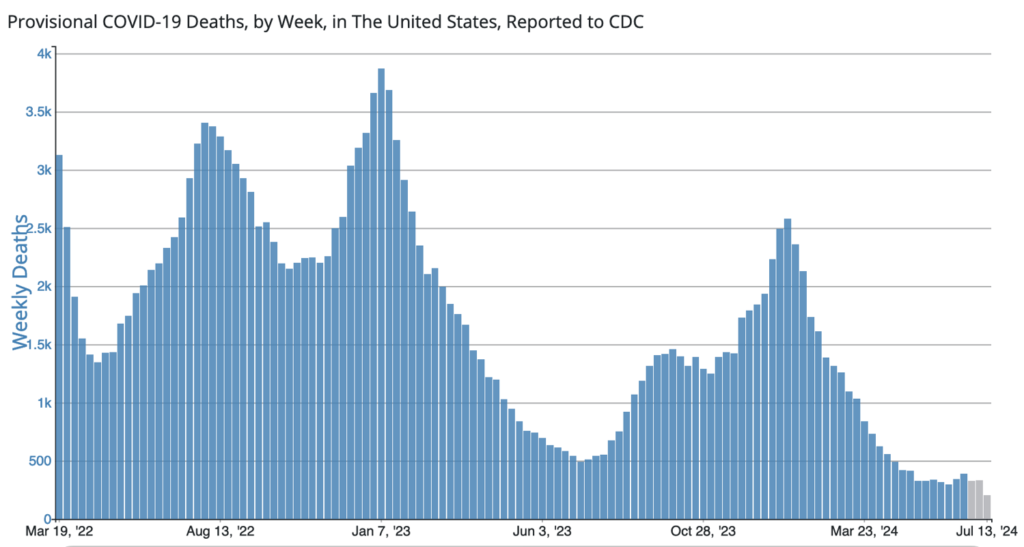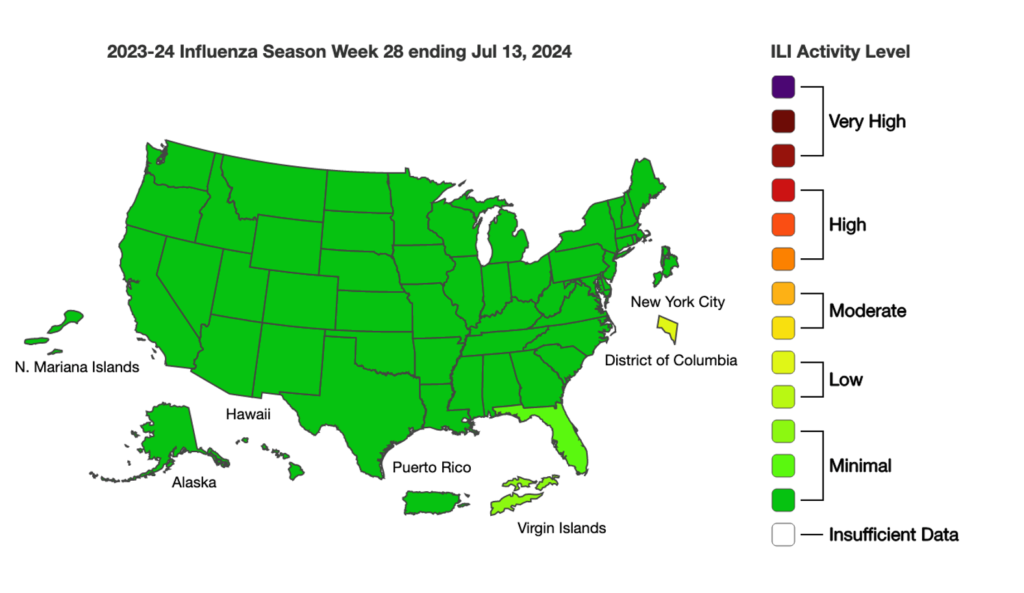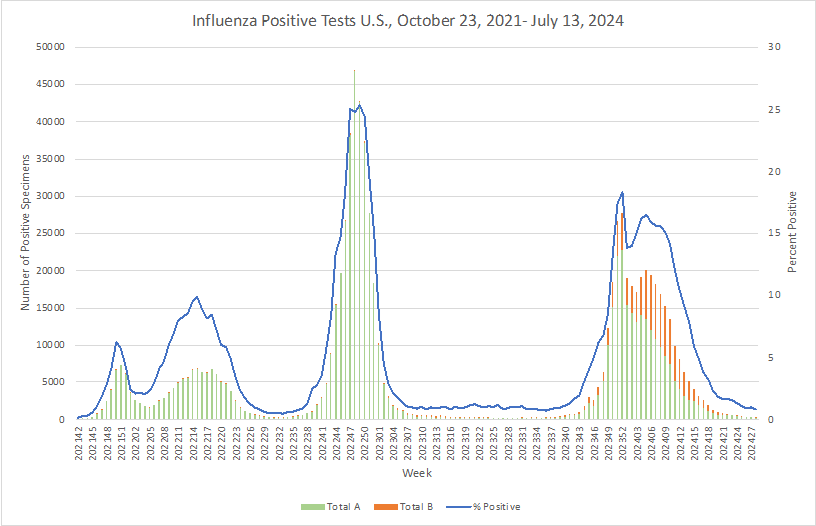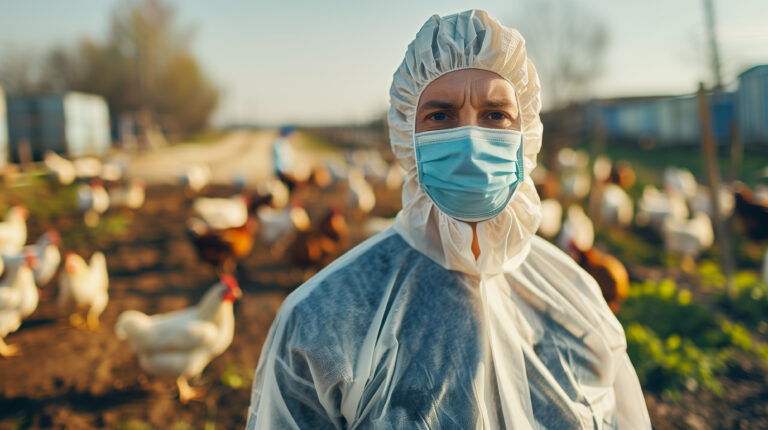Sporadic multi-state outbreaks of H5 bird flu are being reported across the U.S. in poultry and dairy cows. In light of four more confirmed HPAI human cases, poultry, cattle, and other such facilities should be aware that there is a risk of illness for their employees when exposed to these infected animals. To combat this risk, protective practices and efficient monitoring programs should be put in place. Despite recent outbreaks in these agricultural settings, the risk to the general public still remains very low.
On July 12, four human cases of HPAI infection were reported by Colorado to the CDC. A fifth potential case is being monitored, and the CDC will release further information if confirmed. These cases were linked to a poultry facility currently experiencing a H5N1 outbreak. All workers who were infected experienced mild symptoms, including conjunctivitis, as well as fever, chills, coughing, stuffy nose, and sore throat.
These are the first H5 virus infections in poultry farmworkers since 2022 and highlights the need for adequate employee health practices in poultry farms surrounding employee illness monitoring and protection—especially in regions experiencing outbreaks or if you’re seeing potential symptoms in your worker population. Specific suggestions are made on the CDC’s website and it is important to incorporate PPE and GMPs, when appropriate in your operations. TAG can assist in incorporating these methods and others to protect your employees from illness.
A recent study collected blood samples of 35 Michigan farm workers exposed to H5N1 infected dairy cattle and tested these samples for antibodies against avian influenza. None of the workers had shown signs of illness before the study. Findings showed none of these individuals carried antibodies, which indicate there was no prior infection of H5N1. This demonstrated low seroprevalence to H5N1, even in workers exposed to infected cattle. The CDC also suggests that asymptomatic cases are unlikely—although more research is to be done. Per the NY Times, David O’Connor, a virologist at the University of Wisconsin-Madison, said “We need to look harder for asymptomatic infections before we declare mission accomplished.”
As more monitoring and testing is done by the CDC and others, updates will be available to the public. The CDC’s interim recommendations page includes a table which categorizes individuals at risk of H5N1 infection based on setting and means of exposure. This table will soon incorporate bird- and poultry-related exposures. Another useful resource is TAG’s HPAI FAQ sheet (which is updated as additional data becomes available on the virus) with best methods to prevent infection in employees and across the supply chain. If you have any questions on mitigating employee illness risk in your facility, reach out to TAG’s expert public health and food safety consultants.
COVID Risk Matrix:

Influenza:


- Cases of “Delta hepatitis,” which is said to be an aggressive strain, were diagnosed in Brazil with more than 1,000 cases per year reported. Many of these are in rural areas, so getting treatment to those who need it may be difficult.
- More than 2,000 people have been diagnosed with the flu in New South Wales, Australia—a 16% increase over this time last year. Health officials are urging influenza vaccinations.
- There has been a recent spike in COVID but overall, the numbers are still very low in much of the country. Being up to date with COVID vaccines and anticipating new vaccines that will be released in the late summer/early fall is recommended.
- Canada reported its first case of a human infected with the H1N2 virus, a rare strain of flu typically associated with swine. The patient had mild symptoms and has recovered.
- In Nigeria, at least 103 deaths and 3,623 suspected cases of Cholera have been reported. The rainy season has begun there and this likely contributed to cases.
- A norovirus outbreak that occurred in early July has been linked to the Sammamish Cafe & Spirits near Seattle, Washington. There were reports of ill food handlers. The restaurant has undergone cleaning and disinfection and has since reopened.





